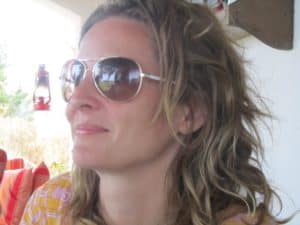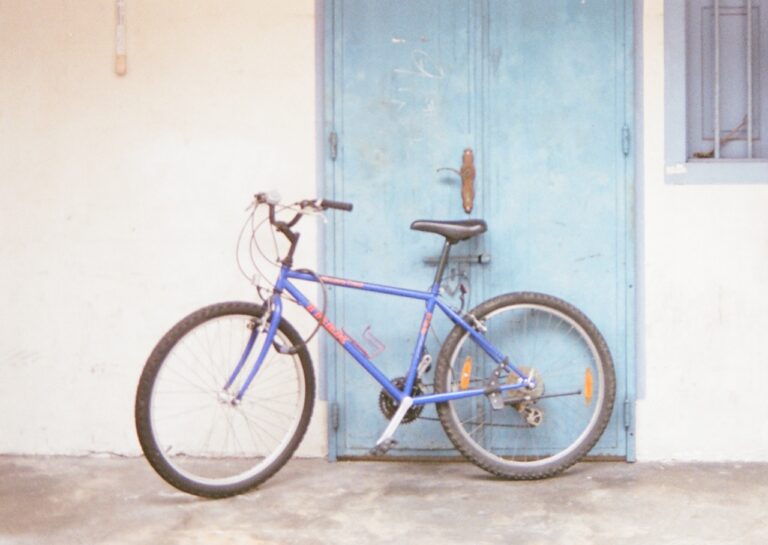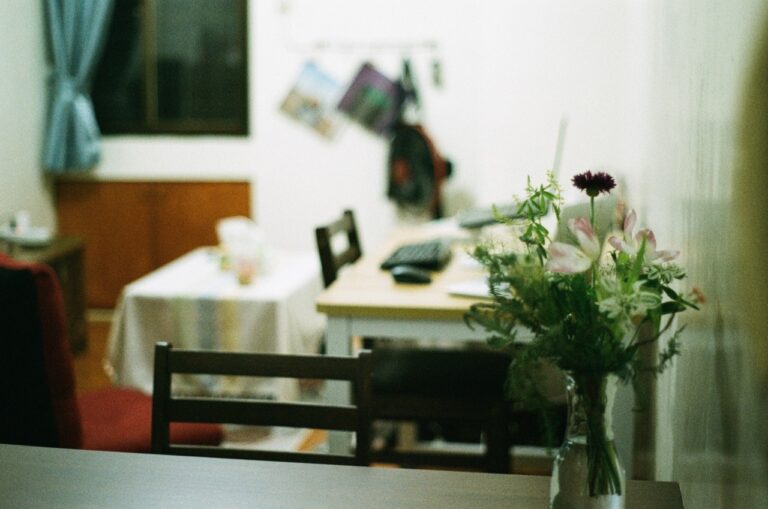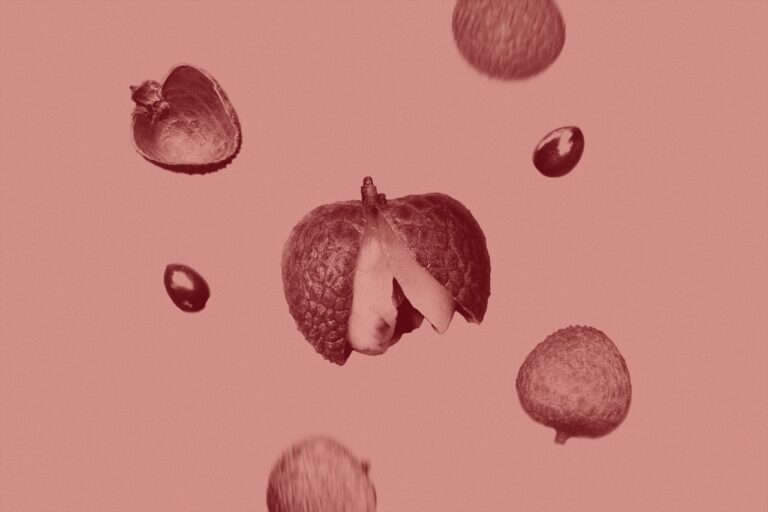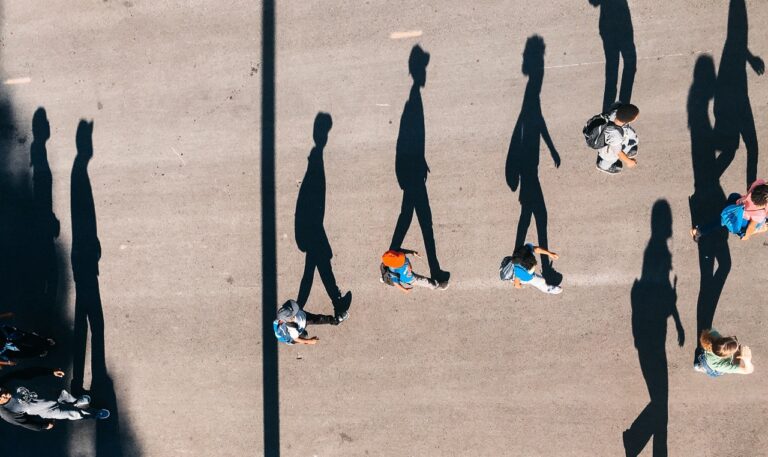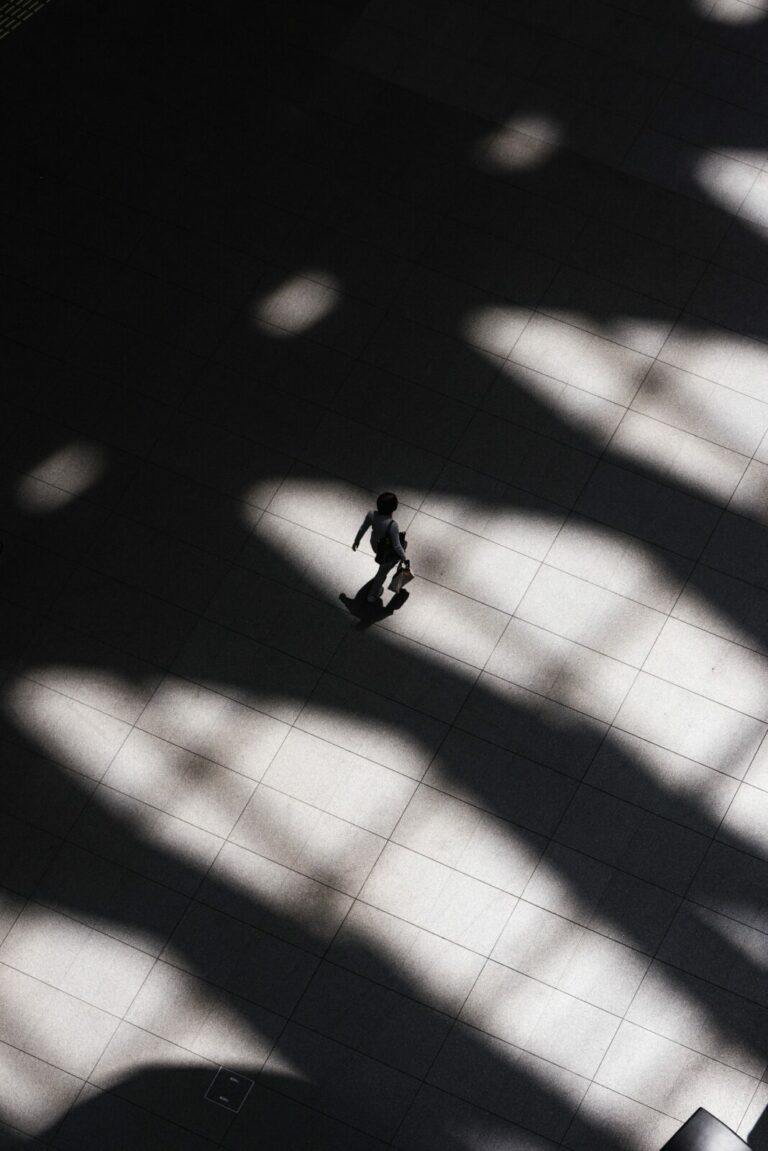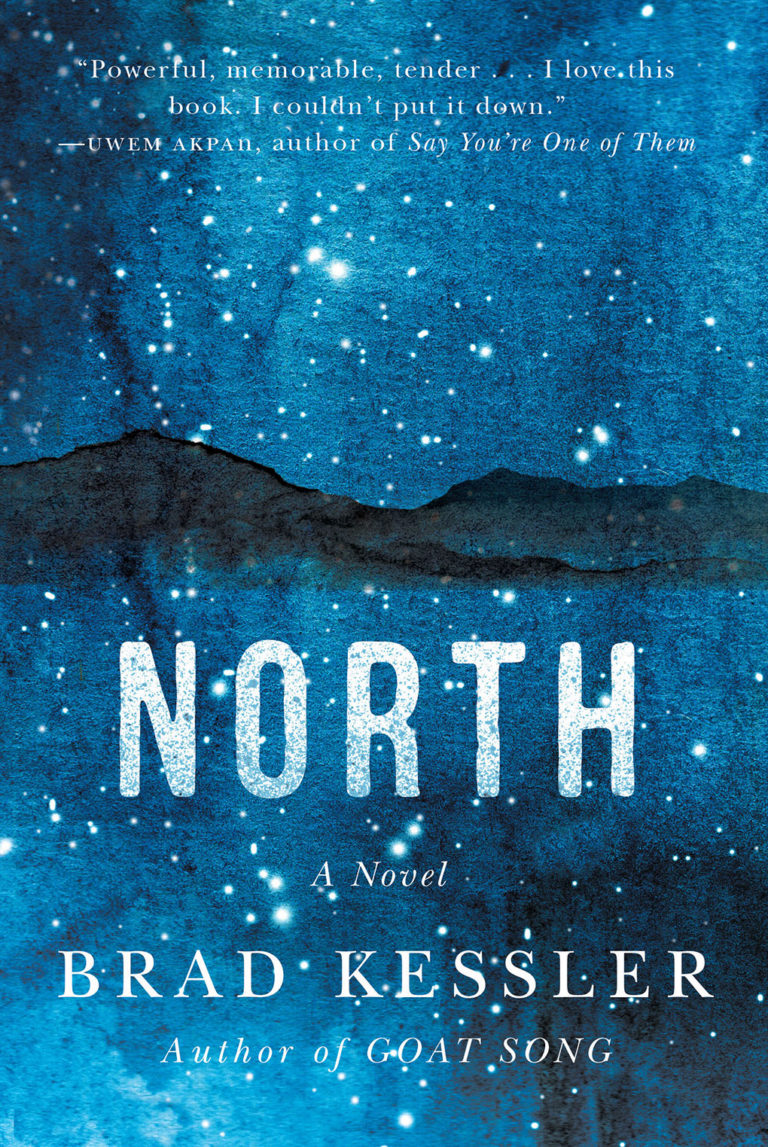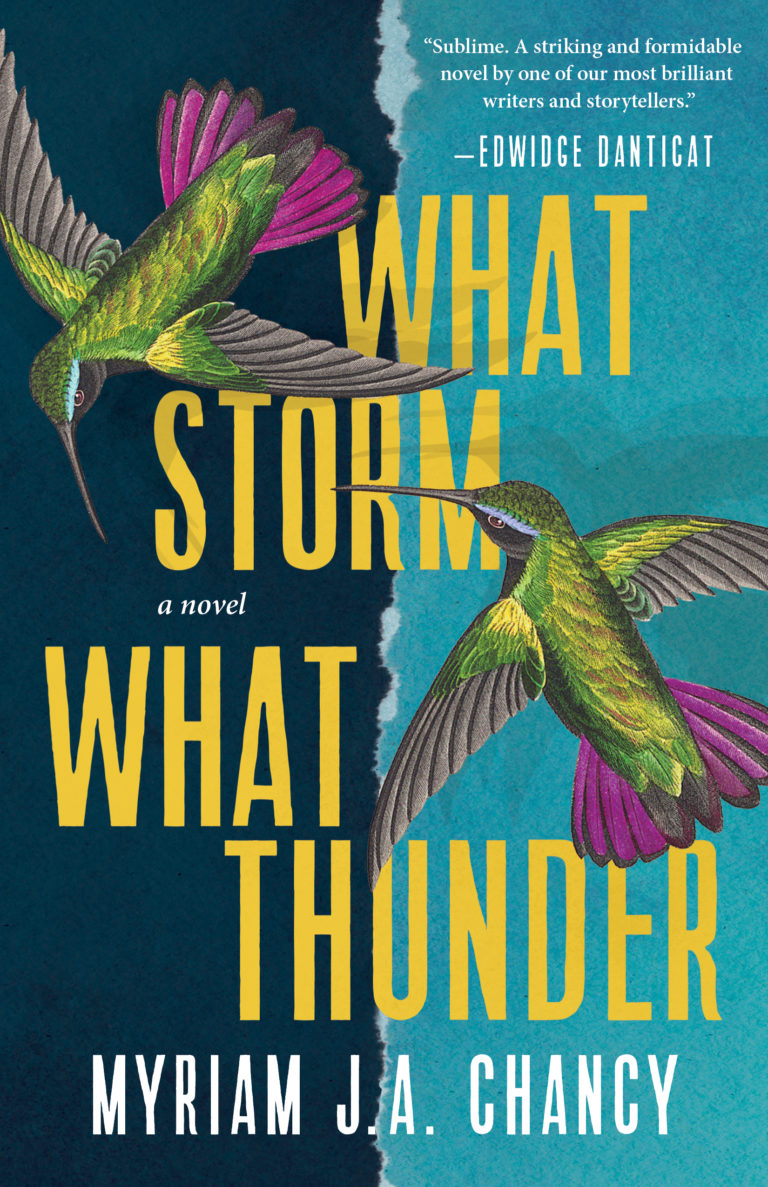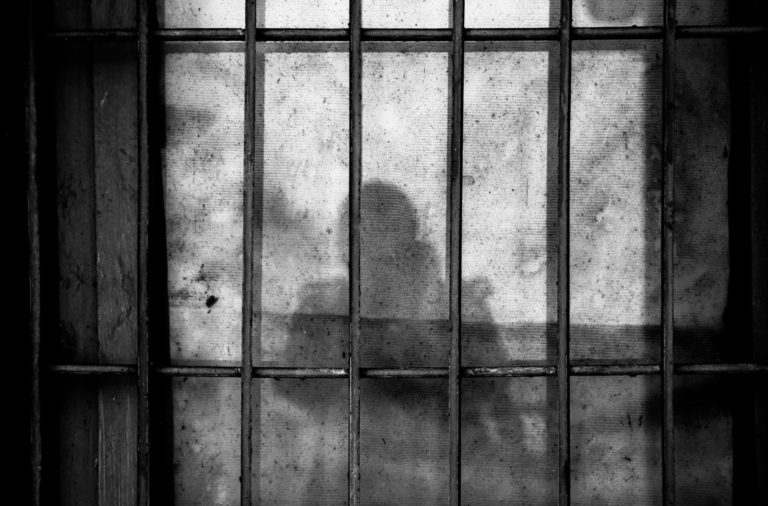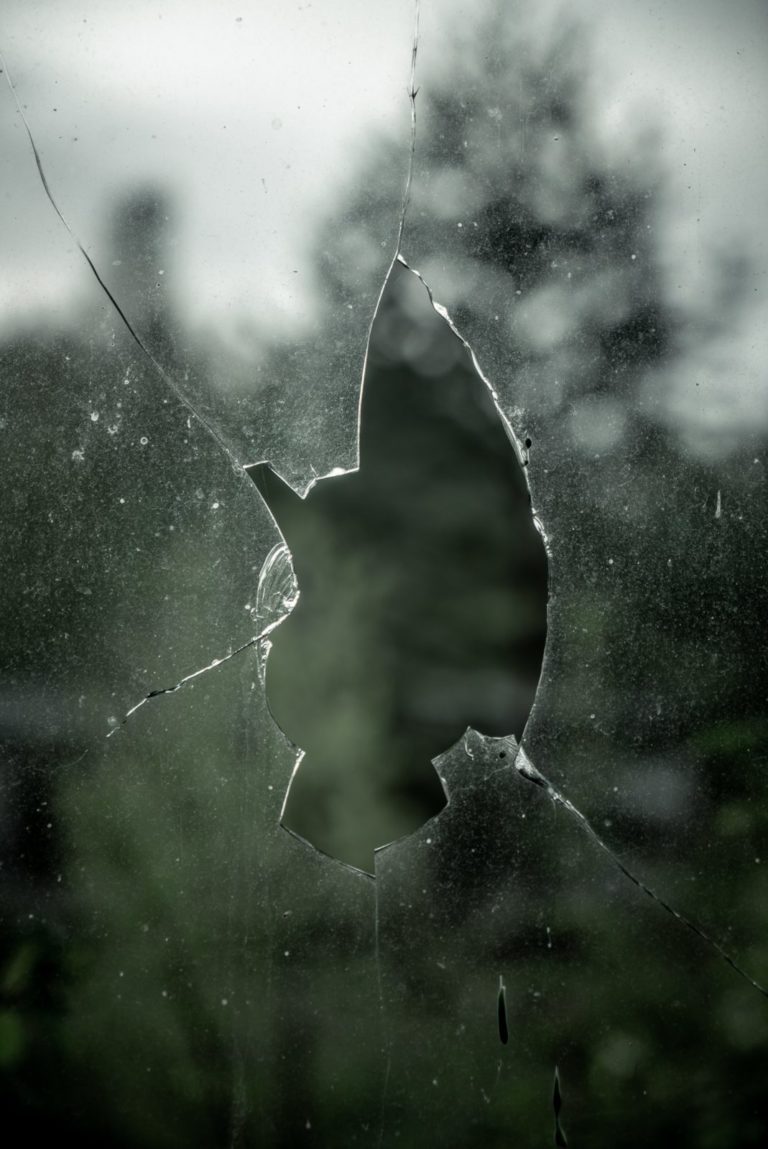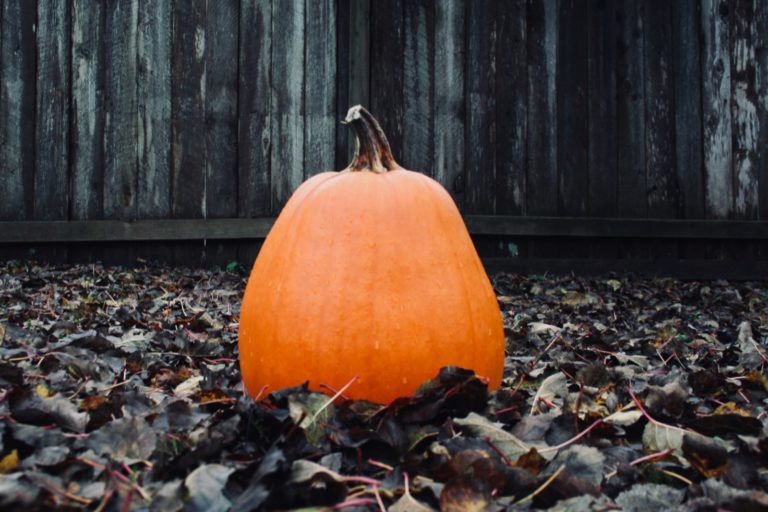The house, with its gabled roof and bay windows, Paul had to admit, was a tad ambitious. Thirteen years of testing and retesting their daughter had depleted their down-payment savings—as had the co-payments, deductibles, state specialists, and private specialists to refute the state specialists. Believing in your child, it turned out, came at surprisingly measurable material cost.
And yet at the real estate agent’s, the broker’s, the multiple lawyers’, his wife, Monica, had failed to stop him. She’d egged him on, in fact, with visions of flagstones and hammocks, a vintage croquet set. She was a genius at marriage. She knew exactly—without ever mentioning it aloud—what turned Paul on.
Long ago, she had passed by him on a collegiate sidewalk, smelling, so delectably, of co-op housing—brown-flour gingerbread and feminist crystal deodorant. And her breasts. The American majesty. The braless swell. All of which had almost distracted from her sailing-freckles, her pewter-colored eyes. It had taken Paul far too long to figure out: This was a girl who knew what to do with a fish knife.
Cutlery aside, Monica had been fucked and dumped like anybody else, most of all by her parents. Paul had wooed and loved her on these lacks, as well as on the hopes she had mumbled—stoned, late at night—of something as embarrassing and mundane as him never leaving her, him always promising to show up for their son or daughter’s lacrosse games and school plays. Even if their son or daughter happened to be cast as an oversized fabric carrot in the background. His dreams for their child were modest: a saucer sled instead of the garbage lid. No discount-milk tickets at lunch. No bus stops alone in the rain.
But their child, as the genes played out, was Halley.
Paul had finessed the first few days at the hospital—the brave, supportive comments, the calls to his in-laws. Only alone, standing beside the clear plastic crib, did he fumble, his eyes searching hopefully, invasively through her features. All newborns looked a little squeezed, didn’t they? Babies got mashed coming out. Especially in the nose and forehead.
He had seen the birth movies. He had learned the Bradley breathing. There was always room for error, even from people with higher degrees and second opinions and stethoscopes bouncing around their necks like clown umbilical cords. He looked at his baby, his little girl—her face.
The world went rubber for an instant. Or maybe longer, a few weeks or months or years. Monica, thankfully, took over. She quit her full-time, better-paying job. She sponged off snot. She applauded. She disciplined. She mouthed the horrific howling vowel sounds that his daughter made, trying to ask for a glass of water or a sticker. She managed the tampons, when at age eleven, Halley starting bleeding in the bathroom at Chuck E. Cheese. While Paul stood outside the door, whispering, “You guys okay?” still holding her mini pizza.
Her doctor—a regular pediatrician for once—claimed it was normal, all the girls were getting their period early, no doubt brought on by the hormones in mass-produced milk. Paul did not know how to respond to this. On the way back home, he sat idling at the light, staring at the oversized twist of ice cream that dripped onto the roof of a nearby Mr. Softee’s.
“Green,” said Monica.
He did what he was supposed to, and drove through it.
***
The new house came with a train line—a village. Walking their streets, Paul felt so grateful, and, at times, victorious. The air tasted crisp here, even in the summers. In the fall, the children went to schools with both chalkboards and philosophies—his child too! He listened to his neighbors clucking over the lack of modern dance and Tibetan restaurants. But, really, what was there not to love?
Save for the osage oranges. These were some kind of fruit, from back in the days of cattle-raising and village commons. They hung off every other tree, then fell off. In gutters, on the lawns, they looked like enormous walnuts —still in the shell—only green, unnaturally green. Walnuts with some kind of thyroid problem.
A meeting was called. One by one, homeowners stood up in the junior-high auditorium. They listed their grievances into a microphone: Some people were not raking up their oranges. Some people were not participating in the brand-new composting program.
“We all know the real issue,” said a man at the podium.
“The kids!” said a woman.
“Can we go home now?” whispered Paul.
“No,” whispered Monica.
“But we don’t even have a kid.”
She drew back. She looked him over.
“You know what I mean,” he said. “We have a child. Children are younger. Or younger-minded. Nicer. Kinder. Not into meth.”
“Halley’s classmates are going to involve her. We need to know the age-specific issues.”
“All I’m saying is we could go home. And fool around.”
Monica turned away.
“Hey!”
But she was deep into an imitation of a parent of listening to other parents. The kids, it turned out, had gotten into the oranges. They were shaking them off the trees, picking them up from yards, building private trash bag stashes. They were practicing fast-balls on slow-moving students behind the junior-high gym.
Paul had seen these kids, every now and then, while sitting at night in the car. They swooped in. They ambushed and took off—pissing in a mother’s birdbath or planting weed plants in her window box. Then coming back to smoke up later with that mother’s daughter. In that daughter’s father’s car.
He had seen them in twos—and once a three—goldfish kissing in the backseat, the windows smoked and fogged into a lust aquarium. Were they in sixth grade or tenth? Were they even from his neighborhood? He wasn’t sure. Snap judgments meant little these days. Poor kids wore rich kids’ sneakers. And visa versa.
Halley could not tie her shoes. She wore Velcro sneakers, studying her straps with such desperate, lengthy concentration, peeling them off with an excruciating rip
***
Next, an edict, printed on flyers, nailed to trees. Osage oranges were outlawed, thanks to a town sanitation ordinance. Homeowners were now required to rake and bag them the very day they hit the ground. Kids were using them as weapons, hitting each other in the skull, the nose, the eye. Helmets, Paul thought. Didn’t every kid have a bike helmet? But there are places that even helmets don’t protect.
The so-called oranges were hard as baseballs. Backing up that morning, Paul hit one with his car. It didn’t flatten the way a garbage can or a pile of wet leaves did—with that squish that seemed to tell you that you were bigger, bigger than everything, or bigger than something squishable, at least. All he heard was a slow, dull thud that told him nothing, that made him think, but only for the fastest, panicked moment: Child? Dog? Stay? Run?
He got out of the car. He checked the driveway, just to make sure, then checked again. Then sat on the bumper, sweating, wheezing, seized by a desire to rush inside and hug everyone. Even the housekeeper. And it was her day off.
***
The next community meeting, Monica attended alone. Paul stayed at home to babysit. Or stayed in the driveway, anyway. He could see Halley’s window, her curtains, her various hand smudges across the glass. She was sleeping. Besides, he had the monitor on the dash of the car, just in case.
He checked the channel. There were two channels, A and B. You had to make sure the switch was flipped to B, or the crackling meant nothing, the crackling was the ambient air static not Halley static. He checked again. He listened.
Finally—a reassuring moan.
The lawn was silver with moonlight, the grass knee-high and tufted. And yet no kids showed up. He had imagined them dressed in camouflage, equipped with butterfly nets or burlap sacks. Maybe they were done with hunting Osage oranges, back to stealing graffiti paint and whipped cream cartridges.
He leaned his head against the steering wheel. The leather smelled of mass-produced vanilla, the way everything seemed to lately—candles, shampoos, his overweight but not-at-all-kindly receptionist.
He had a thought—an idea, really. If he were a kid, out there in the world, free and alone and horny and pissed-off and depressed, he’d never throw an orange at some other kid with gender issues, or a poorly fitting brace. He’d hide the orange instead, behind the tire of a crossover vehicle—one like his, in fact, with station-wagon styling but SUV gas mileage. Then watch to see: Who stopped to think? Who didn’t? And what was the look, exactly, on the face of that grownup as he just kept backing up, ignoring the thud of something living-sounding being crushed underneath?
The problem, of course, was the thinking part. A real kid never thinks: Run or stay? Child or dog? That kid is gone already.
Something crackled in the monitor. He turned up the volume, quickly, as if somebody might be watching. Not that anybody was. Besides, what was there to see? He was a parent in his car, listening. Halley was a child in her room, asleep the way that all the child-raising books so relentlessly advocated, her head on the pillow, her blankie plugged into her arms to help her self-soothe.
None of Halley’s specialists, not one, had ever asked if she could love. Was it scientifically proven that love, like walking, came pre-installed? Or did you have to learn it? Did it require a functional IQ? Halley hugged anyone who came through the door, smiling, grunting, clapping. Was Paul any different to her than the Fed Ex man, who let her sign for packages and gave her handfuls of logo balloons?
He used to believe he was. Late at night, he used to hold her up and whisper to her about the contents of the refrigerator, showing her the cold bright jars and bottles in the open door. She murmured along with him, feeling each one, as if she understood what he was really saying: See? Strawberry jam. See? Crusty old capers. See? I believe in you, you will know these things and read these labels and name them too, one day on your own. She was a baby then. He was a young father. There were so many moments when they were allowed to hope together, alone in the dark without interruption.
***
A few windshields on Paul’s street turned up broken overnight. The glass shattered by a ball-like object. Clearly, an Osage orange, the police officer claimed. The man had the badge and the pad and the boots, astonishingly polished. He looked down at the plastic daisy on Paul’s doormat. He wanted names, or, if not names, the shape of faces, noses, chins.
Paul had heard nothing from his driveway. He hadn’t seen anything, either. But he took a personal day, if only for the afternoon. He parked his car by the golf-club pool, then circled back to his house on foot. He hid in the next neighbors’ bushes.
What Paul would do for bushes like these—boxwoods, meticulously clipped. A slug humped toward his ankle. A cramp seized up his back. And yet his yard was empty….and empty…and empty, save for the unraked oranges in his grass, and the wind. He did not twitch or stretch. He did not crumple open up his lunch, protected from leakage by a plastic grocery sack.
At last, from across the grass, the kids came—feral and more organized than expected. They loped, fanned out. They stuffed the furrowed green countraband deep in their pockets, then hid, looking for a car, presumably one going fast enough not to see what was headed for it faster— thrown overhand and directly at the windshield.
Smack. Squeal. The crack of tempered glass.
It was horrible, wonderful, the ancient hormonal glory that went flooding through him. Paul waited then, the way those kids were waiting, through the quiet of what might happen, through the wheels of questions turning in their fear-greased heads: Run? Run now? Or now?
One—a girl, bangs, elbows, unfortunately pierced—peeked out from the bushes, just to see if any glass had broken, or if somebody might be bleeding, or if anybody was already out of a car and running after them.
Nobody was, though, not that afternoon, not during any of the others that followed. Nobody sprinted across the streets and yards, throwing out their middle-aged backs, jumping over hedges. It was all so half-hearted, so full-on sad—a father raising his fist, a mother shouting, “I’ve got babies in this car, you little shits!”
The kids were gone already. They were all body then, all arms and legs and parts they seemed to have only when moving, when being chased, when the clumsy thing a kid is—that spaced-out collection of elbows and knees and growing-pains—turns into some genius-work of speed. Paul wanted to believe that they were smiling, even if they weren’t, probably. Even the freest of us is always scared of getting caught.
***
At last, a neighbor chimed in. She left monogrammed anonymous notes, in exquisite but shaky handwriting. Paul worried, skipped a night of sleep, then realized—the penmanship! His adversary was a dying ex-schoolteacher. Only she had the balls to ask him—politely, obliquely—to clean up his yard.
True, a dying ex-schoolteacher might turn out to be bent and arthritic. But Paul had Halley. And in a showdown in the junior-high auditorium, who was going to judge the debate? A bunch of not-dying ex-students, who, most importantly had given birth to children with the appropriate number of chromosomes. He was in the clear. He flushed the monogrammed notes, one after another, in swirls of lilac ink.
Finally, here was an upside. Because he and Monica, they could never risk having another child. They could never, ever, for the rest of their lives, not use a dulling rubber, on top of the pill, if they made love at all, which they didn’t. Because what if?
Today’s IQ assessment was: Halley could peel an apple and cut it up in lopsided little chunks. All of which Paul ate, applauding, ignoring the bitter, kerneled squish of seeds between his teeth.
If only somebody—Monica, a teacher, him—would come out and admit it. His daughter’s life was no more than one endless lesson on how not-to-die after Mommy and Daddy died first.
Then again, whose life wasn’t? Paul had found a pair of his mother’s old gloves the other day, in his sock drawer. He must have slid them in there long ago. They were made of beige polyester—soft and form-fitting, with a darker, leatherette hand-shape stitched to the fingers and palms, presumably for ease in gripping. Isotoners. She had bought a pair each year for winter driving.
His mother. Her insistence on his learning all the state capitals. Her faith in anonymous Public Radio violins. Her push to have Paul tested, to get him into a public school with a glee club and calculus, so he could grow up and give his kids everything she couldn’t, not while working at a dry-cleaning factory. And in return, he had let her shuffle off to a Lutheran retirement community. Seven years since she had died, and oh how Paul still missed her. She would know what to do. Or she wouldn’t know, but she wouldn’t know along with him.
***
On the way to work, Paul tripped over a rake. It was their rake, and, further, it had been left pointedly in front of their step. He picked himself back up, then returned the rake to the shed. Two days later, a box of garbage bags appeared on his pillow. He placed them back in the kitchen drawer, between the tin foil and plastic wrap. And still, Monica failed to yell or shout or leave an exclamation-pointed Post-it on his forehead while he slept, a technique she had used once before, after a dispute about toilet-plunging.
Did she understand his confused, perhaps even pointless, refusals? Or was she just too distracted? Halley had been sent home from school. She had done something to the janitor. Upstairs, Monica lay crying on the bed.
Paul paused in the doorway, unsure as to how to cross into the room. He knew his wife. When upset, when devastated, Monica smoked on the patio. She cut her bangs—savagely, after a bottle of wine. But in the morning? She was back to making flashcards and firing specialists and taking the department of education to court (where she’d triumphed previously, twice).
But there she was, gone fetal and hopeless and heaving. Paul patted her on the back. “I bet that janitor has a record. We’ll do a background check. We’ll turn the tables.”
“Please,” she said.
“That’s who they hire at schools, right? Felons. That janitor has to have tattoos—the homeburned kind.”
“Paul—”
“Or if he doesn’t, I’ll date-rape drug him, then tat him myself. With a lighter. And a Sharpie. You’ll take the cell-phone picture: his face, by a pile of chopped-up Ritalin. In the background, an empty kindergarten cubby. ”
“Just take your jokes and leave, will you? Please, Paul, please?” Monica flipped over. Worse, she said this gently, almost wistfully, without the slightest slur of Pinot Grigio.
***
Downstairs, Paul grabbed the rake, then Halley. He dragged them both outside. He raked up a pile of oranges. Their green color, it was appalling. And their skin. The folded texture. The runnels and bumps. He scooped them into a garbage bag as was required—but did not look up at the window to see if Monica was watching.
Had she ever watched him—all those nights he had spent in the driveway, never shifting out of park? He did not know. This was why the Japanese car gods had invented the sun visor, which, when flipped down, gave the driver the much- needed illusion of being fully hidden, should he break down and cry in the dark, warm comfort of his self-heating leather front seat.
The guy next door came bustling down his walkway. At five o’clock in the evening, he had mulch and a shovel. Grass-stains smeared his college sweatshirt. A wheelbarrow lay at the ready by the porch.
Paul tossed and caught an orange. It was a slightly soft one. The folded skin felt sticky—mold? “Brains!” he said, tossing it aside. “Get your fresh, green brains!”
The guy smiled, nodded—but confused.
“We’ve got them by the bagful! Only fifty cents a pop.”
Another nod, more confused.
“The brains! We should sell them. Or eat them, at least. They’re a fruit, aren’t they? Like in a soup or something! Like pumpkins! Like acorn squash!”
Nothing. Nada.
“Brain bisque, maybe! Brain pie! For Thanksgiving. A la mode! With the in-laws!”
“Brains?” said the man finally, “Oh…! Brains! The Osage oranges.” But he was looking at Paul—not at Halley, not anywhere near Halley—with pity eyes, so much so that he felt compelled to pretend to pull up his sock.
Paul thought he might be sick. He turned away. Then positioned his rake near the grass. Of course he had called them brains; his child didn’t have any. Or not enough ever.
Why was it that things only seemed pathetic and obvious when spoken aloud? He had to keep raking. He had to keep his features in a busy-looking arrangement. He filled a garbage bag. He filled another. And yet the guy next door was calling to him, kindly, oddly. “Paul? Uh? Paul?”
Something kidlike entered Paul’s soul—and his hands and fists. Paul was going to punch him. He turned around, just for a moment, throwing down his gloves.
Which was when he saw her. Halley had her dress held up, her hand shoved down.
She was rubbing, jerking, scratching. She was smiling at the guy, the way she had done to the janitor, only with a pile of raked-up Osage oranges at her feet, green and lumped, like something she had pushed out of her.
Paul yanked down her dress. She wailed. He dragged her inside. And he knew how that looked. He was a father, after all. Not a mother. There was the difference, when it came to the conclusions neighbors drew.
***
Monica bought Halley pants—one size too small, with intricate buttons on the fly.
And still, Paul was hesitant about going outside. Halley wasn’t. She sat the window, pointing, gesturing, begging.
“Tomorrow,” said Paul. “Promise!”
Then, all of sudden, Monica had to go to the principal’s office. The school was refusing to take Halley back—and it was one built especially for kids “with her educational needs.” Once a spot opened up, she was going to be redirected to “a specialized city program” where, local parenting legend had it, the students wore diapers while staring at computer programs that were supposed to teach them how to cash a coupon or buy a bus token.
Add to this: Paul was out of personal days. He took a sick one, his first in life, calling in after lunch, as if he’d been too preoccupied with vomiting to do it in the morning. He did the dishes, sponged the counters. He vacuumed the halls.
In the living room, by the TV, Halley was too quiet. Because she wasn’t by the TV. Or anywhere near the TV. Paul ran to the window. She had made it outside. She was sitting on the sidewalk with a chunk of the neighbor’s new mulch.
Two boys came up, predictably, on skateboards. One was smooth, blond, a future leader, but currently wearing a tee-shirt that read Always Maxi-Pads. The other was husky, as Paul’s mother would have called it. He was gnawing on a granola bar and what looked like part of the wrapper.
Halley waved and hiccupped.
The boys approached—curious? Or planning something?
Paul stayed by the window, just in case. Halley chewed on her thumb. She didn’t appear to be planning anything, either. The boys ignored her, kneeling on the sidewalk to test the heft and weight of Paul’s garbage bags—each one neatly tied-up and packed with Osage oranges. A feat that had taken Paul a week to accomplish.
The granola boy fiddled with a twist tie. When she lunged. And not at her pants, or even the buttons on her fly of her pants. It was worse. It was horrific. She lunged at him—oats and raisins flying, her face descending, her lips suctioning over his. In a kiss. Oh god, her tongue was in there, shoving, her head flung back. Her hands, thick and purposeful, gripped the boy’s head into an evocative, romantic tilt.
Paul grabbed an umbrella. He leapt over the porch steps.
But the boy only shoved Halley off him. Harder than necessary. She fell. The boy stepped back. His friend was giggling, then stopped, then kicked a clump of weeds, as if that told him, the way that burning ants used to, that he was bigger, bigger than everything, more grown-up, or big enough to take it. At least until he figured out that they could just get back on their skateboards and leave.
Both of them rolled off, simultaneously. Halley ran after, to the edge of the lawn. She called to them. Pleading and moaning, rolling on the sidewalk.
“Come inside,” Paul said. “We’ll watch the dinosaur on TV. The one that reads.”
But she was bawling.
“Look,” he said, not sure if he meant what he was about to say. “To hell with those shitheels. I’ll play with you. I’ll be your friend.”
She picked up an Osage orange, one that he had evidently missed. It was rotten—like they all were by now, molded and fuzzed and gray. She held it out. He took it. He aimed at the mailbox and tossed, overhand.
Thunk, it hit.
“Your turn,” said Paul, ripping open one of his bags, handing her a fresh one.
She threw… and missed..
He offered a star sticker, a trip to the zoo.
She threw and….missed.
“One more try,” Paul said. “You can do it.” He gave her another one. And she nailed it—right at him, shockingly fast and accurate, assuming, that is, she’d been gunning for his nose.
Smack. A rose of hot fresh shock bloomed across Paul’s face. He felt for blood but didn’t find any. The taste, though, was trickling down his throat. Was Halley that mad at Daddy? Or was she some kind of savant pitcher? Or had he turned into Monica, reading intelligence into Halley’s ability to screw on the cap to the toothpaste?
Regardless, his daughter had an arm. Paul led her into the bushes, along with the ripped-open bag of Osage oranges. He sorted and stacked, cherry-picking for the least-decayed examples. There, they waited: him shushing, her clapping, both of them giggling and watching for a chance. A luxury sedan roared past, smoking with fossil fuels.
“The bumper!” he said, throwing. “Go!”
But Halley laughed.
“Throw!”
She smiled. She sniffed at the orange, lifted it up to her mouth as if to eat it. He grabbed from her, threw it for her—hard. And when the car swerved out? When the tires squealed and blackened down the street? When Halley wouldn’t run or hide or duck or move, even though he pulled her? When the car stopped and the driver, a man, a father, a guy in pleated khakis got out, running, screaming, holding up a windshield scraper?
Paul knew what he should to do. He should hold his daughter by her collar. He should yell at her, “What’s wrong with you?” And to the driver, he should say, “She’s….” and shrug his shoulders. Forcing the driver to back off, if not apologize for the mix-up, buddy.
The driver was at the azaleas now, his scraper still raised. It was wooden, sturdy, with a sharpened blade for ice. Halley went on smiling, squatting in the grass. Paul’s mouth wouldn’t move, his tongue gone fat and dead and stupid.
So what was this cry coming from him—this moan, hiccupped and animal? He had heard it so many times before, while sitting in the driveway, never rushing inside to help or comfort, not with a glass of water, not with a song or whisper, while Halley lay in her bed alone, wailing, too scared of the dark to reach up and flip on her own light? He took her arm, tried to lift her. She looked up, her face her usual happy, smeared mash of his and his wife’s features, as if she were speeding by in a car too fast to see or understand.
The driver, the scraper were approaching. Paul tried again: Up Halley, up! But she only flopped and went limp, holding on to his waist—hugging him. He couldn’t stand it, he couldn’t, not all that warm, blind, human forgiveness. They had to go. He had to stop crying. He had to stop holding onto her, as if she were keeping him from falling and not the other way around. Couldn’t she smell it on him, all those times he had reached for the monitor—and turned her down?
